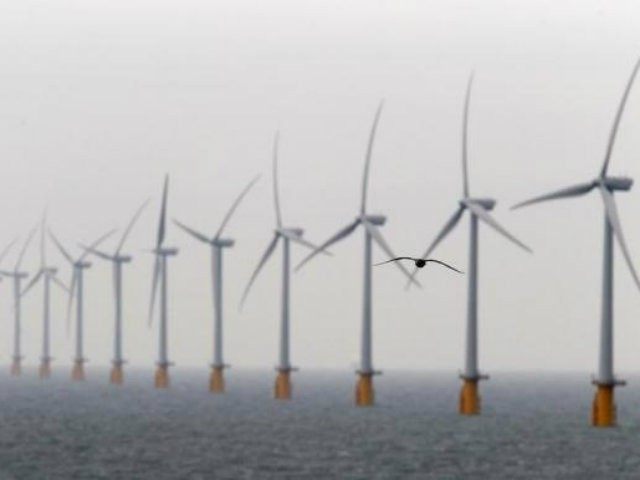Britain’s energy policy is on course to be “the most expensive domestic policy disaster in modern British history,” the Centre for Policy Studies has found. In a new report, author Rupert Darwell warns that Britain can either have renewable energy or it can have a free market in energy, but it can’t have both. He has concluded that Britain must therefore either renationalise the energy market or scrap its commitment to renewable energy.
Government intervention into the energy market, undertaken to meet EU requirements on renewable energy generation, has resulted in the largest expansion of state power since the nationalisation of various industries in the 1940s and 50s, according to the report.
Privatisation of the energy markets under Thatcher led to huge gains in productivity, cutting bills commensurately. But Darwell reports that by 2013 fully three quarters of the productivity gained between 1994 and 2004 was lost thanks to current energy policy which uses subsidies to wedge renewables into the energy mix.
“The electricity sector is being transformed into a vast, ramshackle Public Private Partnership, an outcome that promises the worst of both worlds – state control of investment funded by high cost private sector capital, with energy companies being set up as the fall guys to take the rap for higher electricity bills,” Darwell says.
What competition there is between current energy providers is a mere “expensive sideshow”, costing £730 million in 2008, according to Ofsted figures. But competition has been eliminated from the generation side, stymieing innovation when it comes to new technologies.
Under EU law, Britain is committed to generating 15 percent of its total energy, including power, heat and transport, from renewable sources. In practice, that will require 30 percent of the country’s electricity to be generated by renewables.
“Target-driven policy objectives are inflexible,” Darwell has said. “They prevent exploration of tradeoffs. The more compressed the deadline, the higher the costs. The overriding focus on meeting the target narrows the field of vision, so that emerging difficulties from other countries, notably Spain and Germany, were ignored as evidence for reappraising the target.”
In order to meet that target, the government has poured billions into subsidies for renewable energy, mostly wind and solar, paid for by a levy on energy bills. Darwell has calculated a net annual cost for renewable energy of £6 billion. According to official government estimates, the average household already pays £68 a year towards green energy subsidies. By 2020, that figure is expected to have risen to £141 a year, or 11 percent of an average annual bill of £1,319.
However, Darwell insists that the official costs have been “massively understated”. As well as the direct costs of the infrastructure, cabling, maintenance and so on, he says the government must factor into its calculations the cost of having a backup system on standby at all times for when the wind doesn’t blow, or the sun doesn’t shine.
He estimates that scrapping the renewables target and reinstating a free market in energy would save households £214 a year, assuming that gas is brought in to replace the renewables. If coal is used, the savings would be even greater as coal is currently 45 percent cheaper than gas.
“Cost, efficiency and affordability were subordinated to the goal of meeting an arbitrary target, Darwell says. “To keep the lights on, everything ends up requiring subsidies, turning what was once a profitable sector into the energy equivalent of the Common Agricultural Policy.”
“Having decided to adopt a renewables target, there has been no comprehensive analysis of its costs, benefits and implications for the market. In particular, decision-makers did not ask what exactly electricity consumers get in return for the use of high cost private sector capital and whether it represented value for money for them.”
Sir Ian Byatt commented in the foreward of the paper: “Ministers have destroyed the emerging electricity market while talking of how it could improve competitive processes. They and their advisers have not understood that effective competition proceeds from the right structure of suppliers and works in innovative, not predictable ways.
“Good intentions in the form of a desire to save the planet have led to our impoverishment. We need better analysis, greater transparency and more effective discussion of social and environmental issues, not Whitehall playing shops.”
A spokesman for the Department of Energy Climate Change said: “The figures in this report don’t add up and ignore the urgent need to cut our carbon emissions. We are making sure we can keep the lights on, cut carbon emissions and keep bills down for consumers.”

COMMENTS
Please let us know if you're having issues with commenting.